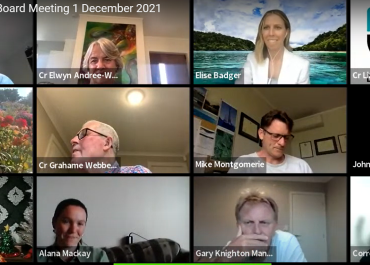

Sue Milner
The two Waipā community board chairs are unhappy they had to allocate their ratepayer-funded discretionary funds with the public watching.
Cambridge’s Sue Milner said this year was the first time they had to consider the applications live.
“We learned a lot about many groups in our area who make a real difference in our community.”
But members felt uncomfortable about debating the applications on live stream.
“If can be very difficult if someone knows something about an applicant, that may be considered detrimental to their application and they have to say this in a public meeting.
“It’s not fair on the board or the applicant,” she said.
Te Awamutu chair Ange Holt agreed saying it was hard to do it in a completely public space.
“It would be nice to go back to the way we used to do it,” she said.
“We do the mahi.”
Waipā allocates discretionary funding to its two community boards and the Pirongia Ward committee. This year more than $70,000 went to community groups and organisations.
There were 64 applications for nearly $308,000. Te Awamutu allocated $22,166.86, Pirongia $24,513.80 and Cambridge $25,000.
Milner and Holt presented to this week’s district council meeting.
Holt was particularly critical of the council-community board relationship saying there was rarely a mention of the community board’s involvement in council media releases and that without her newspaper column, the community would not know what the board does.
She gave the example of the residents’ survey results reported by council.
“We did not see ‘only one out of five think council do a good job’ quoted in the article but we did see community boards singled out with the statement ‘two in five do not know what community boards do.’

Ange Holt
“This was actually 41 per cent, so what about the almost 60 per cent that do know what we do. Considering how much press there is for council compared to community boards, we are not doing too badly. Putting the statement the other way, ‘three in five do know what community boards do’ would reflect that,” said Holt.
She urged the council to keep the community boards informed of projects and activities and to give them more time to feedback.
Often, they only had four days to canvas the community – from when the board agenda comes out to when the meeting takes place.
“That is not enough time, and we often only have one perspective.”








